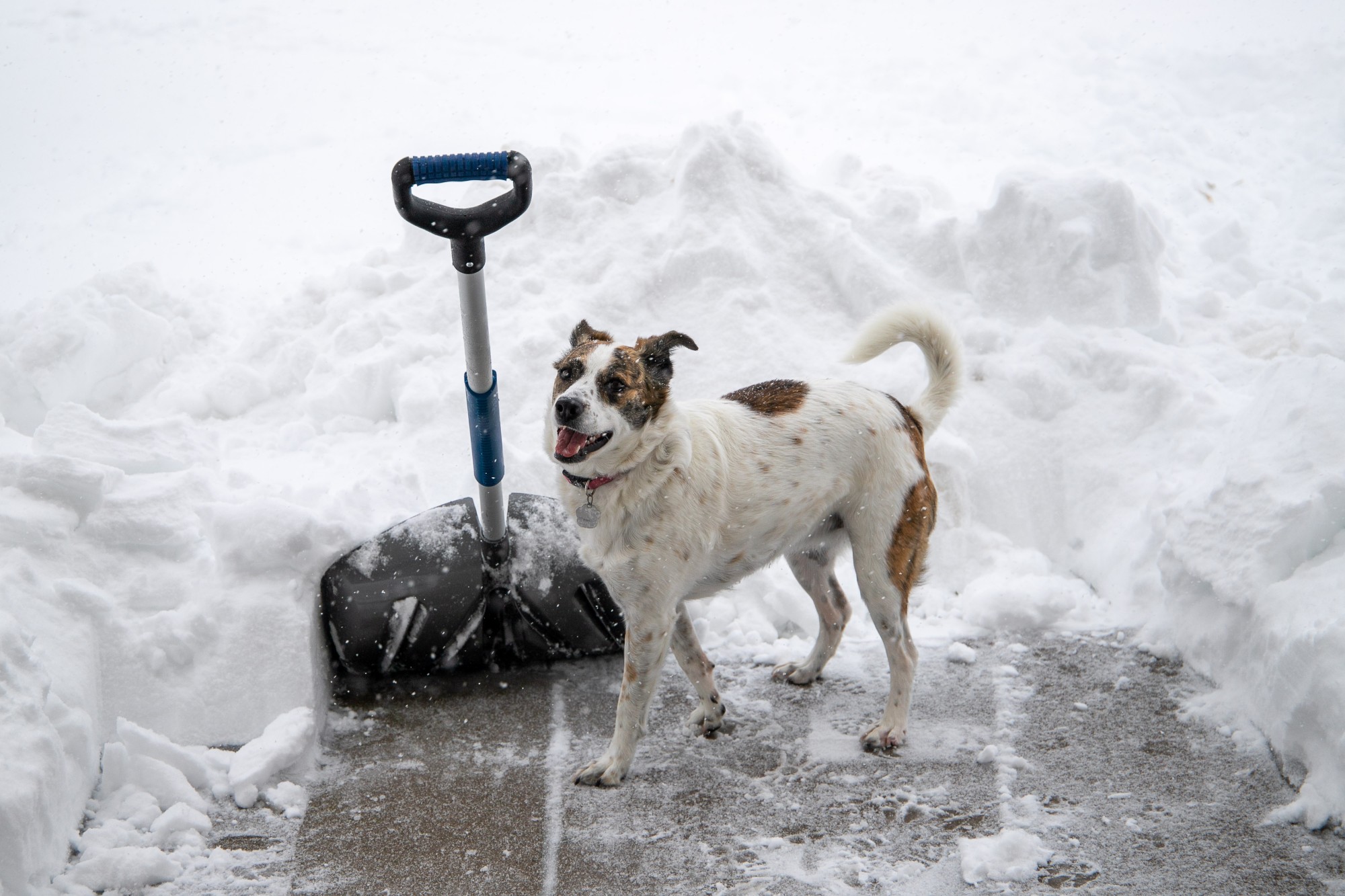If you live in a region that experiences high snowfall, you are probably no stranger to the woes of de-icing. Whether it’s your driveway, walkway, or patio, bulk rock salt has and always seems to be the standard de-icing go-to. But as you may already know, salt is not always the best option.
Learn more about the negative effects of salt for snow buildup and a few other alternatives worth trying…
Table of Contents
The Negative Effects of Salt For Snow Melting
Salt may appear harmless at first. Not only is excessive consumption bad for your health, but it’s also extremely corrosive and can negatively impact your driveway, paving, garden, pets, and your car.
Over time, salt dries up and begins to eat away at surfaces it’s attached to. This could lead to the corrosion of even an asphalt driveway, cement pavers, plants, grass, and the metal on the underside of your car.
Not only this, but your pets are naturally drawn to salt. Excessive consumption can affect their health and damage the underside of their sensitive paws. Using salt to melt snow also has a negative effect on the environment and your local groundwater supply. It gets washed away into major sewer lines and makes its way into local lakes and streams.
When the spring melt rolls around, this can have a negative effect on local wildlife which are not accustomed to the extra seasoning in the water they drink and foliage they eat.
Here are a few alternatives to manage your snow buildup, otherwise check out Pacific Lawn Maintenance for professional snow removal…
Replace Salt for Snow Removal With These Options
If you’re looking for fast and effective ways to melt snow, there are a number of chemical-based de-icing alternatives on the market today. Many of these can be found at your local home improvement store. These chemical-based products aren’t exactly a natural alternative, but they are superior to using salt. They also cost a little more. Some popular products include:
- Calcium chloride
- Magnesium chloride
- Potassium chloride
- Urea – keep this away from all plant life
- Liquid potassium-acetate
- Calcium-magnesium acetate
Some of these products still have corrosive qualities and can damage driveways and pavements over time, but not to the same degree at rock salt.
Natural Alternatives
If you’re looking to go for more of a natural, eco-friendly route, here are a few alternatives:
1. Pickle Brine
This is a truly effective way to de-ice your driveway using far less salt than traditional methods. Yes, the brine still contains salt, but at a reduced amount. It also prevents ice from sticking to the road and makes it easier to remove. According to National Geographic, pickling brine adds up to 29% less chlorine to local waterways too.
To make the brine, mix 2lbs of salt per gallon of water. Then, add a glass of sugar beet juice for the perfect pickle brine concoction to melt accumulated ice.
2. Cat Litter
This is not necessarily a solution to actually melting ice off your driveway. But, it’s an eco-friendly way to add traction in order to create a non-slip surface for driving and walking.
3. Alfalfa Meal
This is an incredibly effective, all-natural means of melting ice. Usually used as a fertilizer, alfalfa meal is great for both ice removal and providing traction for non-slip surfaces.
4. Coffee Grinds or Sand
Due to the darker color of coffee grinds, this helps to attract heat and melt snow and ice buildup. Sand is a great alternative for creating non-slip surfaces and traction.
Improvement Tips and Tricks at Your Fingertips
If you’re looking for home improvement hacks, other than alternatives to salt for snow removal, this blog has it all. Explore our ”For the Home” tab for a plethora of tips on home cleaning, decor and design, organization and so much more…
















